A Guest from Vilnius University
In the last week of November Institute of Philosophy hosted an Erasmus+ visitor from Vilnius University, prof. Jonas Čiurlionis, a long-time collaborator of Ancient Φilosophy Reception research group. It was his second visit in Zielona Góra. One of the tasks of our guest was to consult conclusions of the dissertation by Adrian Habura, the topic of which is a multifaceted reception of Aristotle in Władysław Tatarkiewicz’s oeuvre. It is sufficient to add that prof. J. Čiurlionis is Habura’s auxiliary supervisor.
The most important, however, were Čiurlionis’ lectures and talks for students of philosophy and related fields of study. During the first of them he discussed Aristotle’s Physics. He focused not only on the most significant problems of this work, as, for example, the theory of four elements, but also presented the broader context of Stagirite’s reflection, his fundamental premises and his general view of the world. At the end of the lecture, prof. Čiurlionis referred to Carlo Rovelli, a theoretical physicist, who considers Aristotelian physics to be still topical and not outdated.
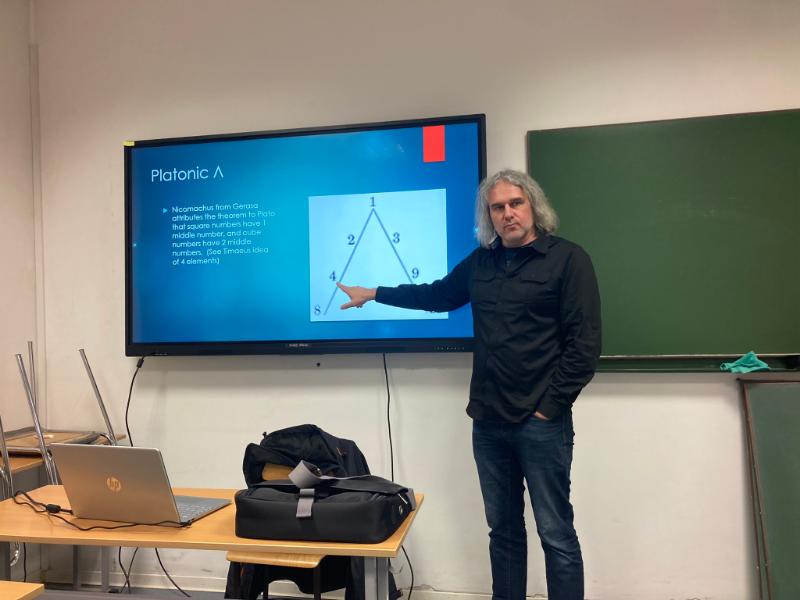
The second lecture on ancient philosophy was devoted to the subject of harmony, broadly considered. Starting with Pythagorean and Platonic concepts, prof. Čiurlionis moved on to other authors dealing with this issue and demonstrated how harmony manifested itself in various aspects of ancient Greek philosophy and, more broadly, in Greek culture, and in subsequent centuries, in music and astrology.
AΦR at the 3rd Congress on Polish Philosophy
The 3rd Congress on Polish Philosophy took place in October (18th-20th) in the Rydzyna Palace. It gathered scholars interested in researching the tradition of Polish philosophy and developing it. Two members of the Ancient Φilosophy Reception research group took part in this philosophical event: Adrian Habura – online, and Tomasz Mróz – onsite. The first of them spoke about the concept of love in the works of Władysław Tatarkiewicz (1886-1980), while the latter – on the history of studies on the reception of ancient philosophy in Poland.
Mróz’s paper was directly concerned with problems related to the reception of ancient philosophy and started with quotes of diverse opinions of two eminent Polish researchers in the history of Greek philosophy, that is, Stefan Pawlicki (1839-1916) and Wincenty Lutosławski (1863-1954). Lutosławski, when composing his works on Plato, searched for Polish authors and their studies to provide references to them, while Pawlicki paid no interest to the works of his compatriots on Greek philosophy.
In more recent decades it was Izydora Dąmbska (1904-1983), a philosopher and historian of philosophy, who published a study on the reception of Plato in Poland (1972), but nowadays many books and papers on this topic were published by the members of the AΦR research group. Concluding his talk Mróz briefly presented research projects of the members of the AΦR and the books they had published, to start with the latest one:
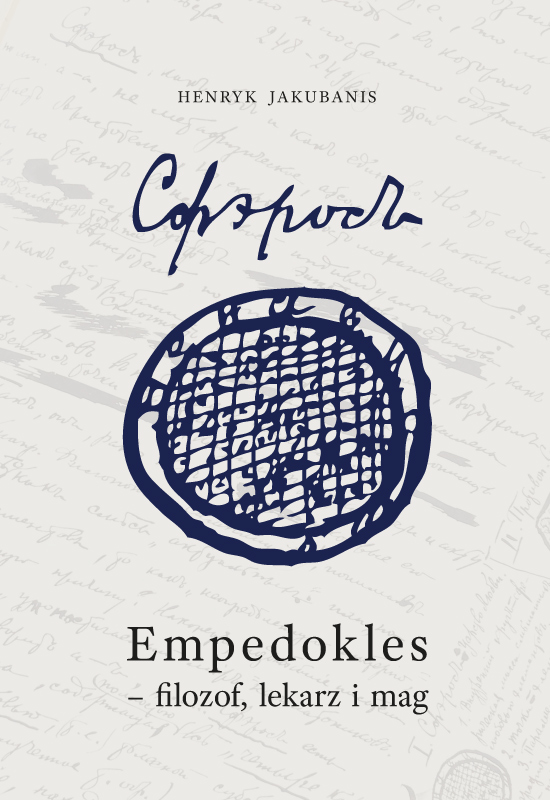
Henryk Jakubanis, Empedokles – filozof, lekarz i mag: Przyczynek do jego zrozumienia i oceny (Empedocles: a Philosopher, a Doctor and a Magus. Materials for Understanding and Assessing Him), transl. from Russian and ed. Mariam Sargsyan, A. Habura, Wydawnictwo Marek Derewiecki, Kęty 2024, 104 pp. (Studies and Texts in the History of Reception of Ancient Philosophy, vol. 3).
T. Mróz, Stanisław Lisiecki (1872-1960) i jego Platon (Stanisław Lisiecki (1872-1960) and His Plato), Wydawnictwo Marek Derewiecki, Kęty 2022, 150 pp. (Studies and Texts in the History of Reception of Ancient Philosophy, vol. 2).
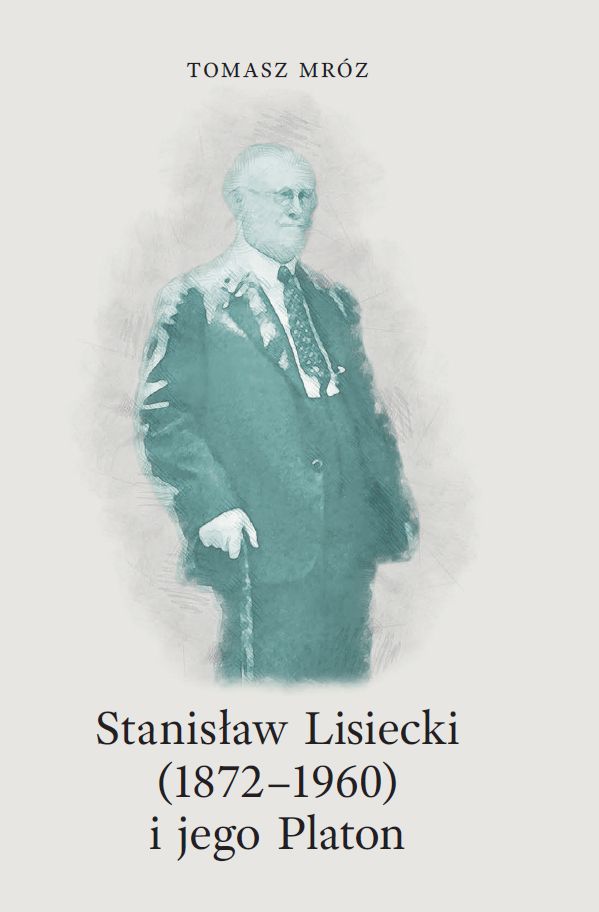
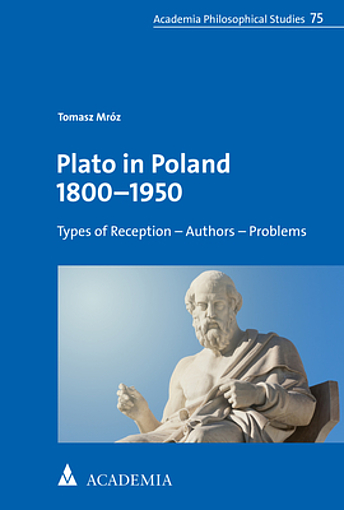
T. Mróz, Plato in Poland 1800-1950: Types of Reception – Authors – Problems, Academia Verlag / Nomos Verlagsgesellschaft, Baden Baden 2021, 480 pp. (Academia Philosophical Studies, vol. 75).
S. Lisiecki, O Platonie, Arystotelesie i o sobie samym (On Plato, Aristotle and on Himself), ed. T. Mróz, Wydawnictwo Marek Derewiecki, Kęty 2021, 367 pp. (Studies and Texts in the History of Reception of Ancient Philosophy, vol. 1).
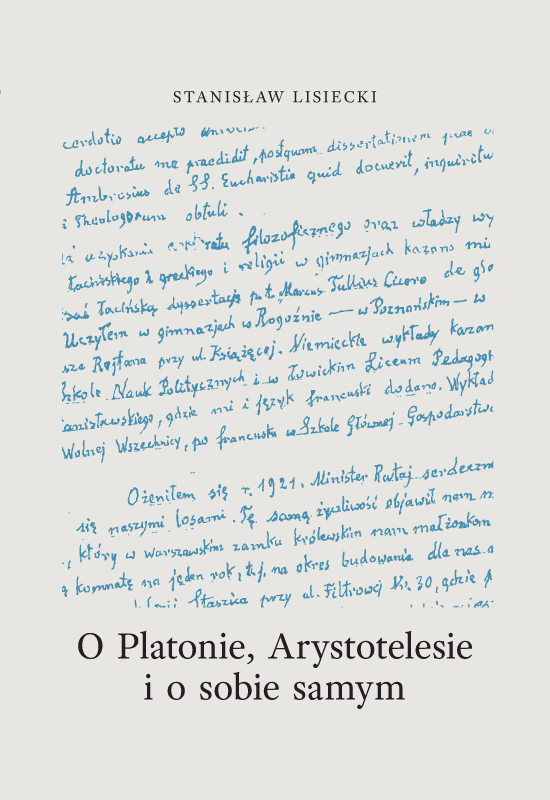
and some earlier ones…
Henryk Jakubanis and His Empedocles
Empedocles: a Philosopher, a Doctor and a Magus. Materials for Understanding and Assessing Him.
It was the title of the most important work by H. Jakubanis (1879-1949)
originally published in Kyiv in 1906.
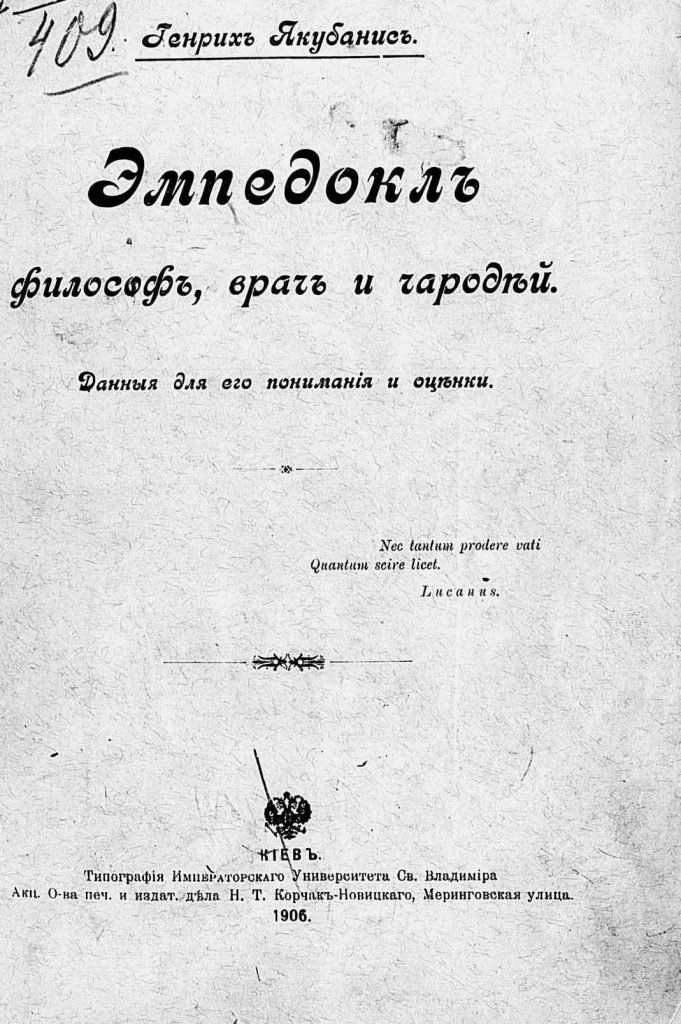
At the time of publishing this book the author was a young, 27 years old, lecturer and researcher at the St. Vladimir Imperial University of Kyiv. His area of competence and interest was established, it was ancient literature and philosophy with an emphasis on Greek philosophers. This volume consisted of two main parts: 1) Introductory presentation of Empedocles’ life, Sicilian society, culture etc., and finally – the sources of his philosophical thought. 2) Translations of the remaining fragments of Empedocles in verse and prose, with philological commentaries. It is the Jakubanis’ translation of the philosopher’s texts that won him recognition in the Russian-speaking world. Suffice to say that it is still in circulation today.
Jakubanis’s Empedocles had to wait for over a century to become finally available to Polish reading audiences. Until now this work had only been listed in bibliographies with no hint regarding its content. Two young Ph.D. students and researchers of AΦR group, Mariam Sargsyan and Adrian Habura, took their time to translate it from pre-reform Russian into well readable contemporary Polish. With their introduction the book was published as volume 3 of the book series published by Marek Derewiecki. Naturally, only Jakubanis’ own text was translated into Polish, for there was no need to re-translate his Russian renderings of Greek philosophical poetry. All the more so that Polish readers have a complete translation of Empedocles’ fragments by Katarzyna Kołakowska, a researcher from Jakubanis’ beloved Catholic University of Lublin.

It should only be added that the book is accompanied by an afterword by Kołakowska and it is available on the publisher’s website here.

This book is one of the results of the research project funded by National Science Centre on Henryk Jakubanis (1879-1949) as a classics scholar and historian of ancient philosophy.
Professor Ryszard Palacz Passed Away
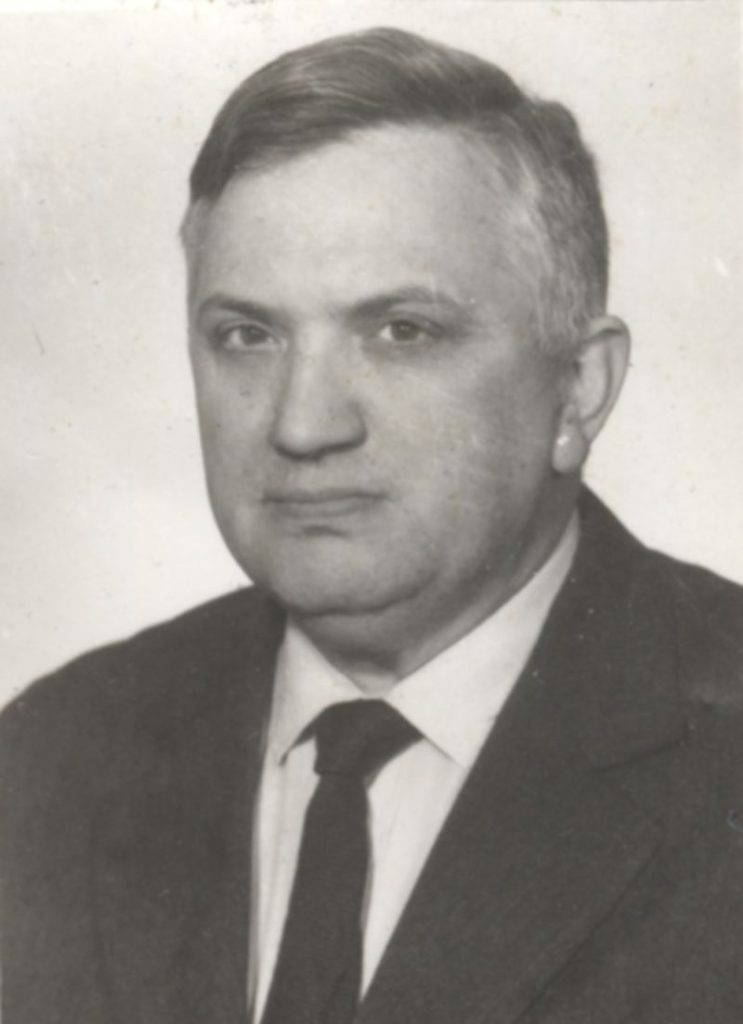
It is with profound grief and heavy heart that we announce the demise of our dear professor, superior and supervisor, teacher and friend, Professor Ryszard Palacz (1935-2024), who died in his house near Warsaw on October, 19th. For decades he worked in the Polish Academy of Sciences in Warsaw, but was also able to gain valuable experience in numerous research and academic institutions in France, Germany, Canada, Italy and Spain. His decades long research was focused on mediaeval philosophy and its various aspects.
Professor Palacz was the founder of the history of philosophy section in the University of Zielona Góra and had a great, personal or indirect, impact on all historians of philosophy here. During his work in Zielona Góra he succesfully supervised one Ph.D. candidate and encouraged his colleagues to take up research in various areas of the history of philosophy. Thus the activities of the Ancient Φilosophy Reception research group can be considered as a part of his lasting legacy, all the more so that He himself investigated the reception of Aristotelianism on mediaeval philosophers in the 12th and 13th centuries.
Requiescat in pace!
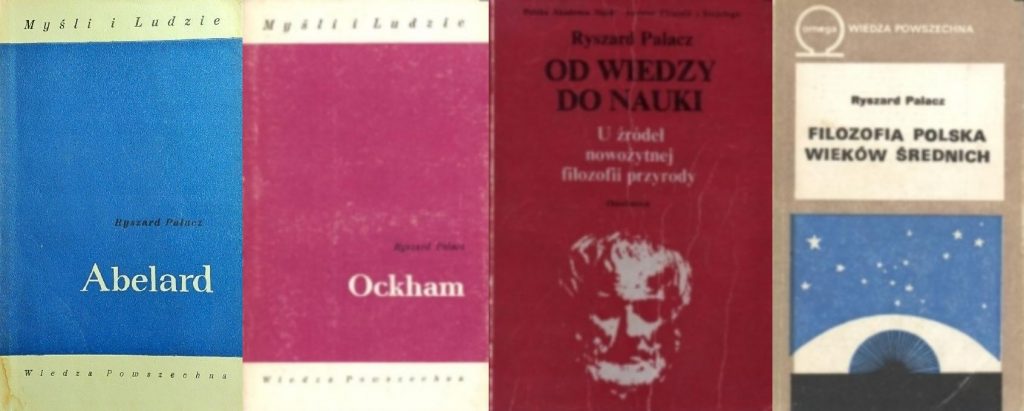
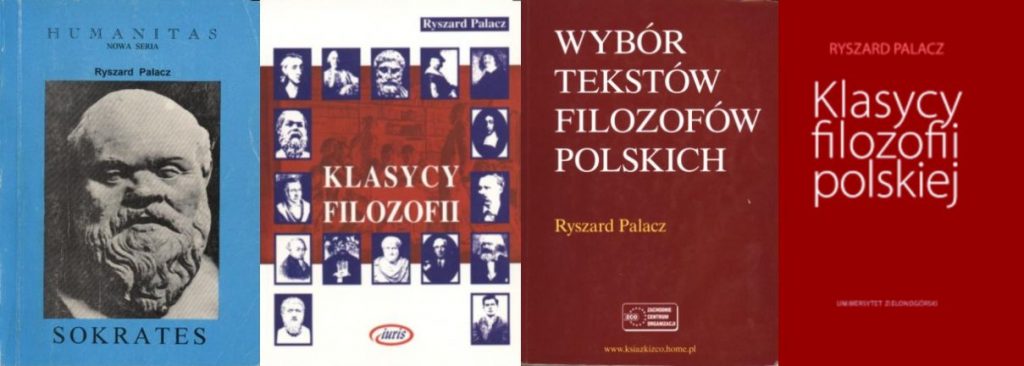
American Platonism and ISNS Dublin Conference
International Society for Neoplatonic Studies, in accordance with its name, promotes studies and academic work on Platonism, Neoplatonism and Platonic tradition broadly considered. In co-operation with various academic centres throughout the world ISNS organises annual conferences with large number of panels covering a wide spectrum of what can be called Neoplatonism. In 2024 the conference was held in Trinity College, Dublin on June 19th-23rd.
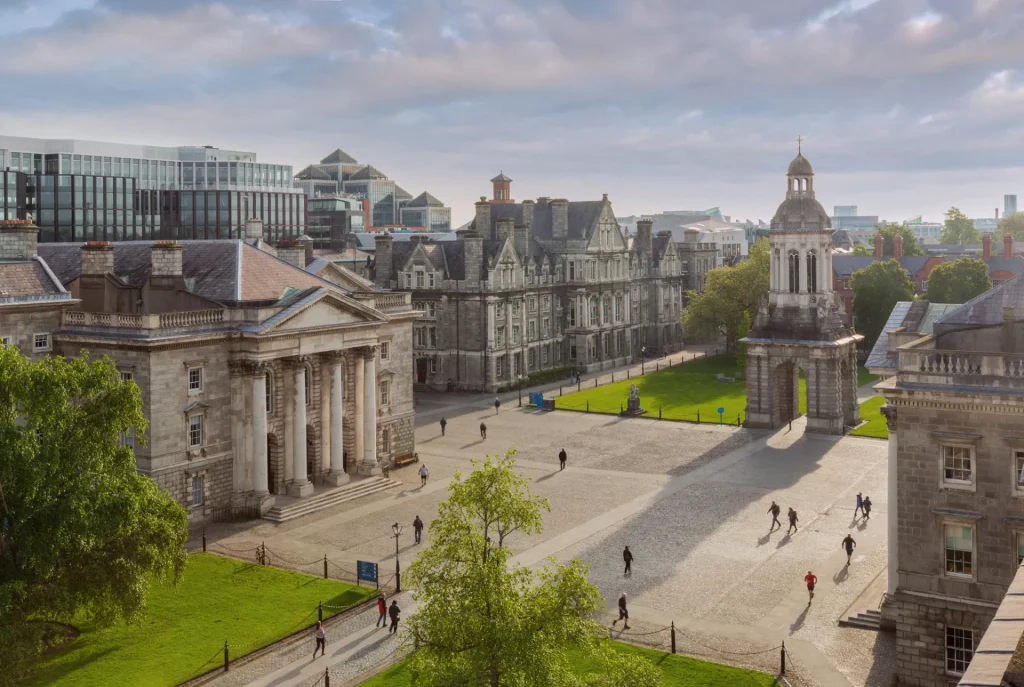
Among numerous panels of the Dublin conference there was one on the American Platonic tradition, its title was: Transcendental Echoes: Neoplatonism’s Influence on American Renaissance Thought. The aim of this panel was described by its originator, prof. Sonya Isaak, as follows: “this interdisciplinary panel endeavors to explore the dynamic intersections between Neoplatonism and American Transcendentalism, elucidating the profound philosophical, spiritual, and literary amalgamations that defined this vibrant movement in the 19th century…”. The panel had only three speakers (prof. Jay Bregman, prof. S. Isaak and T. Mróz), but it gathered many participants in the audience who wanted to learn bout the developments of Platonism in the 19th century American thought.
T. Mróz’s paper was titled Paul Shorey as a Plato Scholar and his Influences from Ralph Waldo Emerson. Shorey (1857–1934) was the most eminent and internationally recognised American Plato scholar at the turn of the 20th century. He took part in the then international disputes on interpreting Plato’s philosophy and the very methods of reading and researching the dialogues.

As an American Plato scholar, Shorey, in his works on Plato, did not avoid referring to American writers, with a particular emphasis on Emerson (1803–1882), the author of Representative Men (with a significant essay on Plato). Shorey, naturally, included Emerson in a long line of thinkers inspired by Plato, but the aim of Mróz’s paper was to focus on the influence exerted by the Transcendentalist writer and philosopher, Emerson, on the classics scholar and academic researcher, Shorey. Although he did not hold Emerson as a philosopher in high regard, there are some traits of his thinking of Plato which may be ascribed with Emersonian origins, for example, reading Plato as a moral philosopher and tendency toward unity. Thus the connection between American Transcendentalist movement and academic studies on Plato in American tradition was demonstrated.
History of Classics Discussed at UHK
An essential part of the Oral History and the Classics project was a conference held in the Faculty of Philosophy, University of Hradec Králové. This academic meeting which took place on June 1st-2nd and was titled Classics: the Past, the Present, and the Future. It gathered specialists reflecting on various issues related to the development of classical studies including history of ancient philosophy.
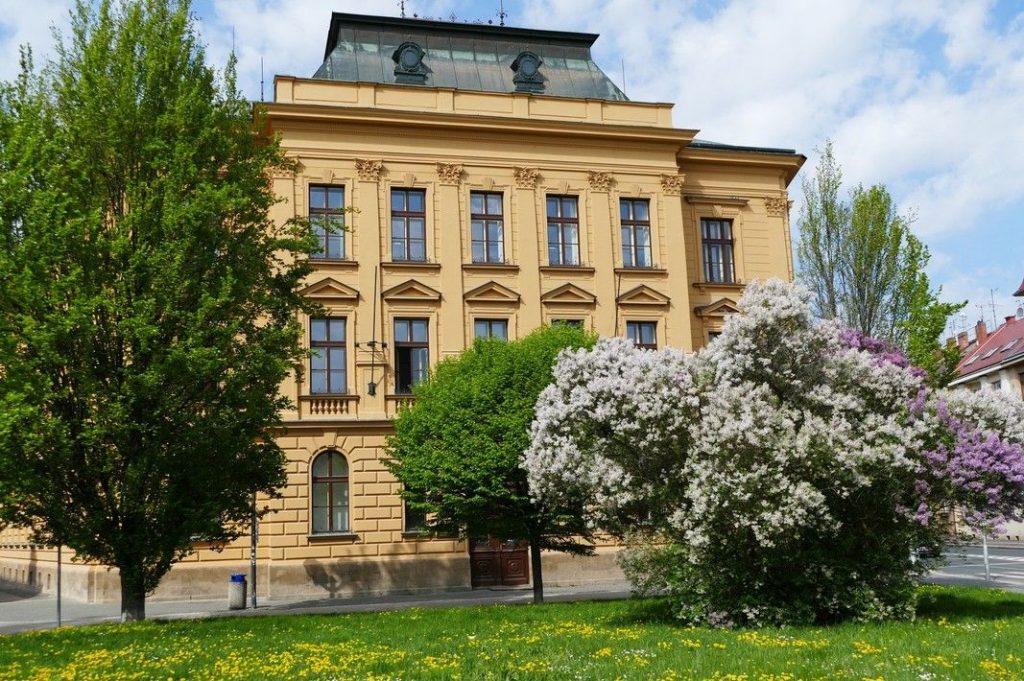
The head of the project and the conference was professor Jaroslav Daneš, with some help from Tomasz Mróz (University of Zielona Góra), a researcher in the project. Participants of the conference focused on historical developments of the classics, including their own experiences, “personal paths”, on recent problems, e.g. with teaching classics, and on the perspectives of future research in this area of studies.
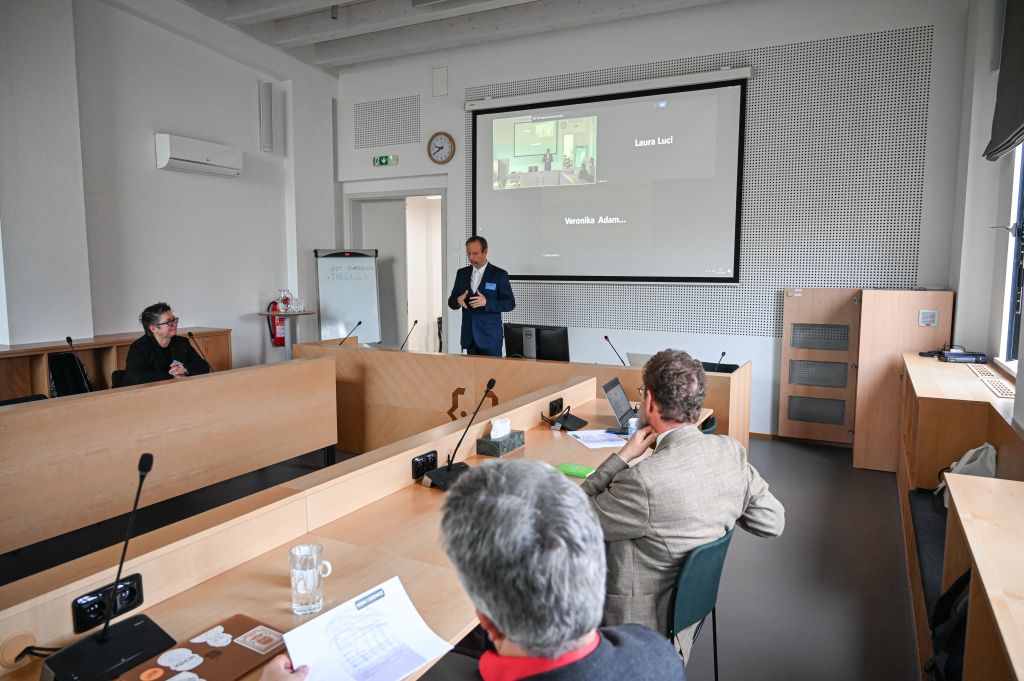
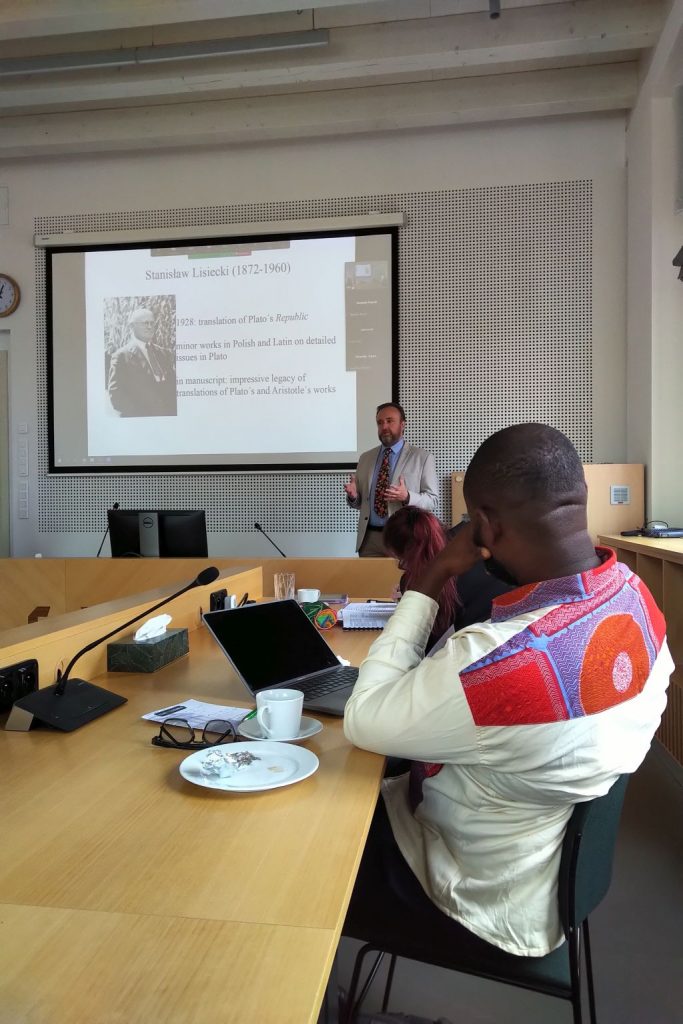
Platonic Inspirations was the title of the session during which an AΦR member,T. Mróz, delivered his paper: Plato in post-war Poland. Continuities and novelty. His talk was devoted to three Polish Plato scholars, who survived the World War II and attempted to include their experience of war and the post-war political situation of Poland into their studies on ancient philosophy. They were, starting with the oldest: Wincenty Lutosławski (1863-1954), Stanisław Lisiecki (1872-1960), Władysław Witwicki (1878-1948). It is sufficient to mention that it was the Marxist interpretation of Plato that was pushed in Poland after the war by Polish Marxist philosophers (e.g. by T. Kroński) and in general works on philosophy translated from Russian. In these circumstances Lutosławski planned to published a volume on Plato presenting him as an intellectual and moral remedy for Europe, Witwicki, quite the opposite, blamed the philosopher for inventing totalitarianism, and Lisiecki turned from Plato to Aristotle, who was more acceptable then as a naturalist and a critic of Plato.
Vitello’s Anthropology and Its Aristotelian Roots
On May 28th-29th 2024 a conference titled Polish Philosophical Anthropology took place in Częstochowa. This event was organised by the Department of Philosophy, Jan Dlugosz University. It was another conference held in Częstochowa that aimed at shedding some new light on selected aspects of the history of philosophy in Poland.
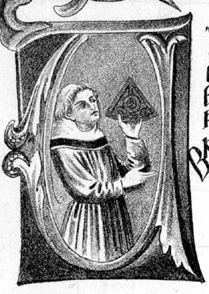
AΦR member, Tomasz Mróz, has participated in this conference with a paper devoted to the philosopher with whom all the histories of philosophy in Poland usually begin. It was Vitello, a 13th century scholar, who is well-known from his theory of demons as animals built from the four elements with air as a dominant factor. Vitello argued that the demons were superior physically and intellectually to all the other animals, including human beings. Human beings, consequently, could only be considered as an intermediary species between apes and demons. In this way Vitello, with the aid of Aristotle, demonstrated that human being can’t be regarded as a crowning creature in the terrestrial world. Let us add on the margin that Vitello took advantage of his expertise in philosophy, natural sciences, medicine and life’s experience to depict vividly various interactions between humans and demons, not all of which can be presented to the minors

Recent commentaries